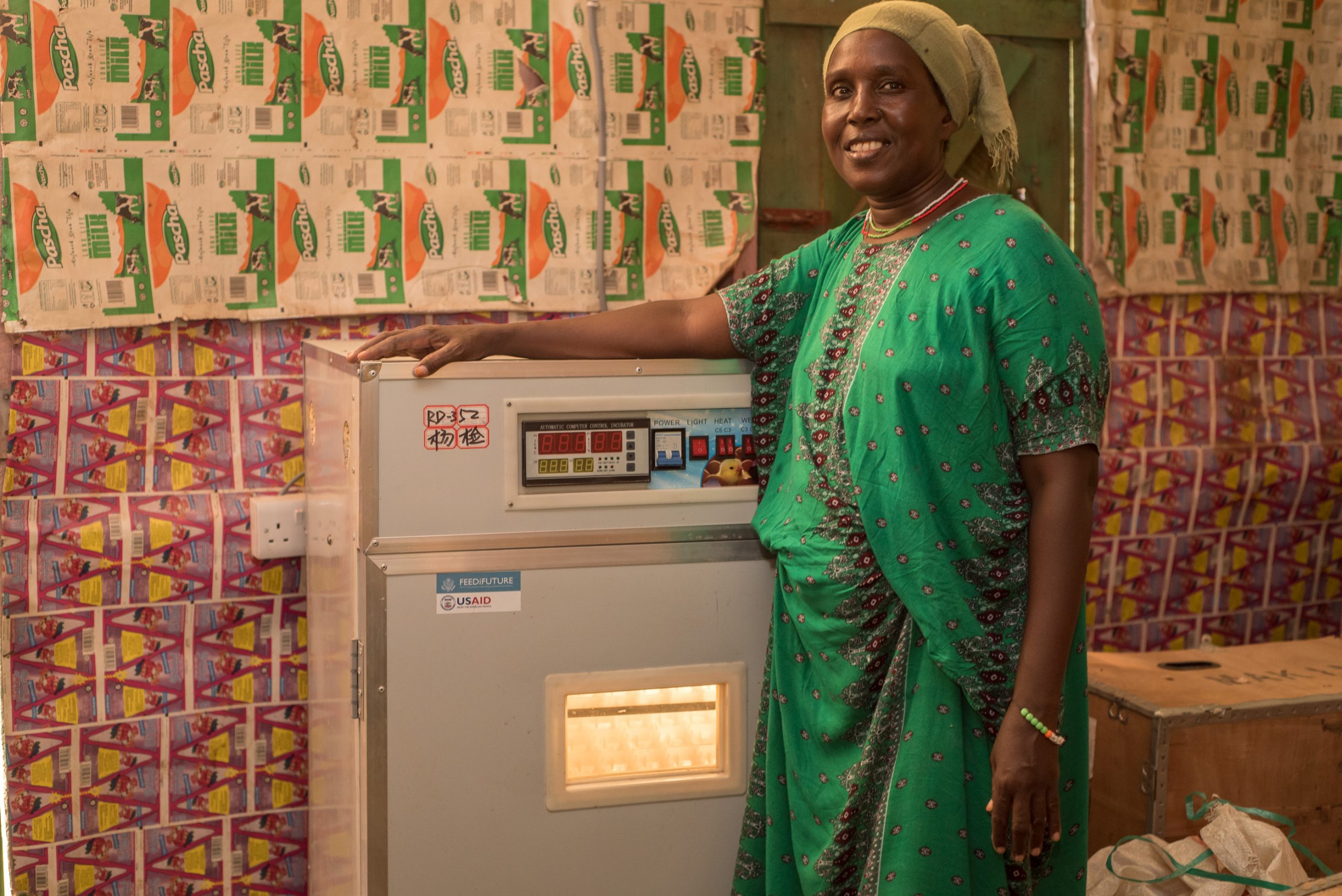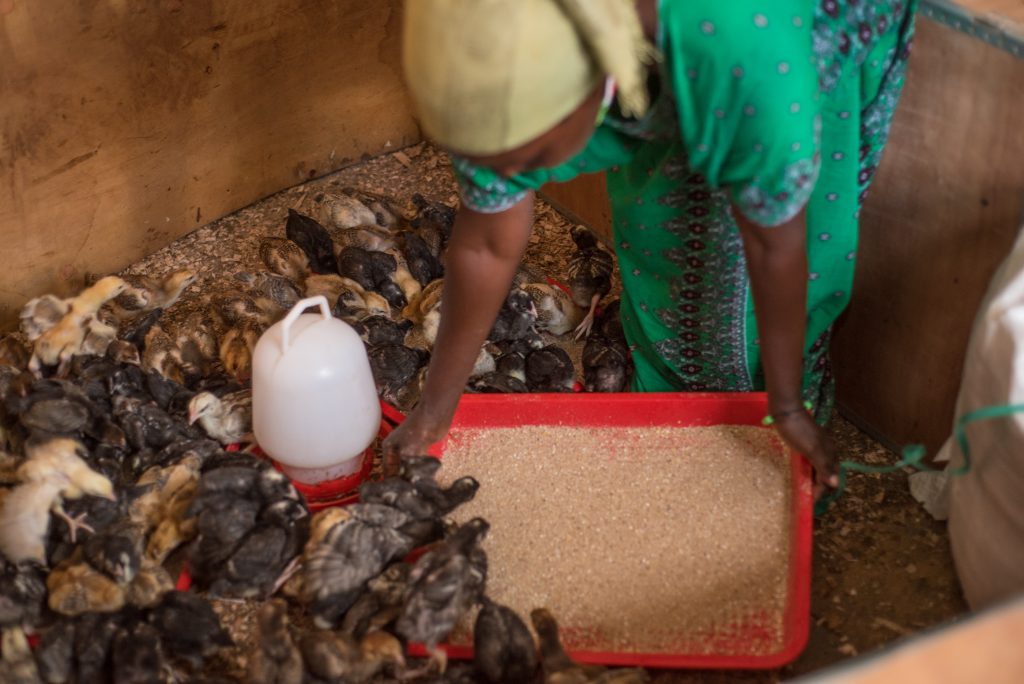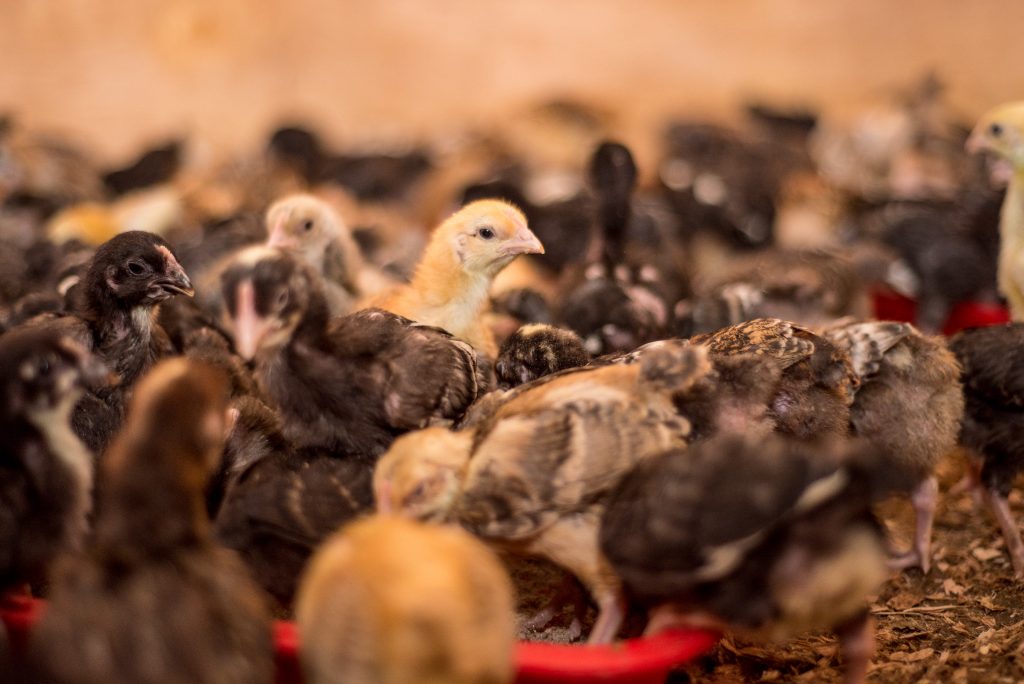
Kuresha Bile, a mother and widowed farmer in central Kenya, has seen it all. In 2009, her life crumbled around her. “Cattle raids and ethnic atrocities target[ing] . . . my community reached our home in Burat. My husband was killed, and I lost 48 goats. As a result, I fled and settled at Bullabesa in Isiolo. Even though peace was restored in Burat, I cannot go back,” she reflects.
In her new home, Kuresha, her mother, and her five children rebuilt their lives, but things were not the same. Previously, she owned her home and farm. Now, she had to rent a house and buy food, straining her meagre finances. Near the rental space she acquired, Kuresha started a small kitchen garden. She sold any surplus that remained. No sooner had she started to settle in than adversity struck again. This time it was drought. “When the drought hit in 2015, water became scarce and traveling to the river was a challenge. It now was an even harder struggle for me to farm and get meaningful income,” Kuresha recalls.
Through all of these trials, Kuresha did not give up. Soon her perseverance bore fruit. While engaged with a World Food Programme Food for Asset project, Kuresha was introduced to the USAID-funded Feed the Future Kenya Livestock Market Systems (LMS) Activity, implemented by ACDI/VOCA, in partnership with Mercy Corps, The BOMA Project, and Smart Regional Consultants.
Poultry-Rearing Training Enables Farmer to Start A Hatchery
As part of Kenya LMS’s efforts to diversify the livelihoods of the communities with which it works, Kuresha learned poultry-rearing skills. She gained the tools she needed to start a hatchery. “LMS staff taught and trained us on poultry rearing and how to ensure our chickens are healthy for sale as well as for nutrition. I started with 20 chickens. Even though 6 died, I was able to sell 14 and not only make my money back but also made a profit. The second time I bought 25 [chickens] and after rearing and selling them, I bought 30 more,” Kuresha explains.


Although it has not always been smooth sailing–at one point Kuresha lost all of her chickens due to disease–she did not give up. In October 2019, she received an incubator through a grant. The incubator has helped her grow her business immensely. “In January [2020], I was able to buy 352 eggs which I put in the incubator. Despite some loses, the eggs hatched successfully and now I am rearing the chicks preparing in order to sell.” By raising chickens, Kuresha can meet her family’s needs.
“Thanks to poultry rearing, I am able to pay school fees . . . for my children. Also, with a portion of the proceeds from the business, I have invested in savings groups which generates an income for me.”
KURESHA BILE, LMS-SUPPORTED POULTRY FARMER
From Poultry Rearing to Accessing Finance
Kuresha’s chickens have also helped her access financing. “Poultry keeping is a worthwhile venture because even when I do not have money, I have an asset which I can borrow money against. Any lender can see that the chickens are a form of security so when time for repayment arrives, they will have their money back,” Kuresha explains.
In Isiolo, 159 people–125 of who are women–have received poultry-rearing training from LMS. This has empowered them to actively engage in this once overlooked form of animal husbandry and earn a living. Increasing demand for chicken meat and eggs improves nutritional outcomes, while creating jobs and generating revenue, benefitting Isiolo’s market system more broadly.
Learn more about our Kenya LMS Activity here
Learn more about our work in Kenya here





